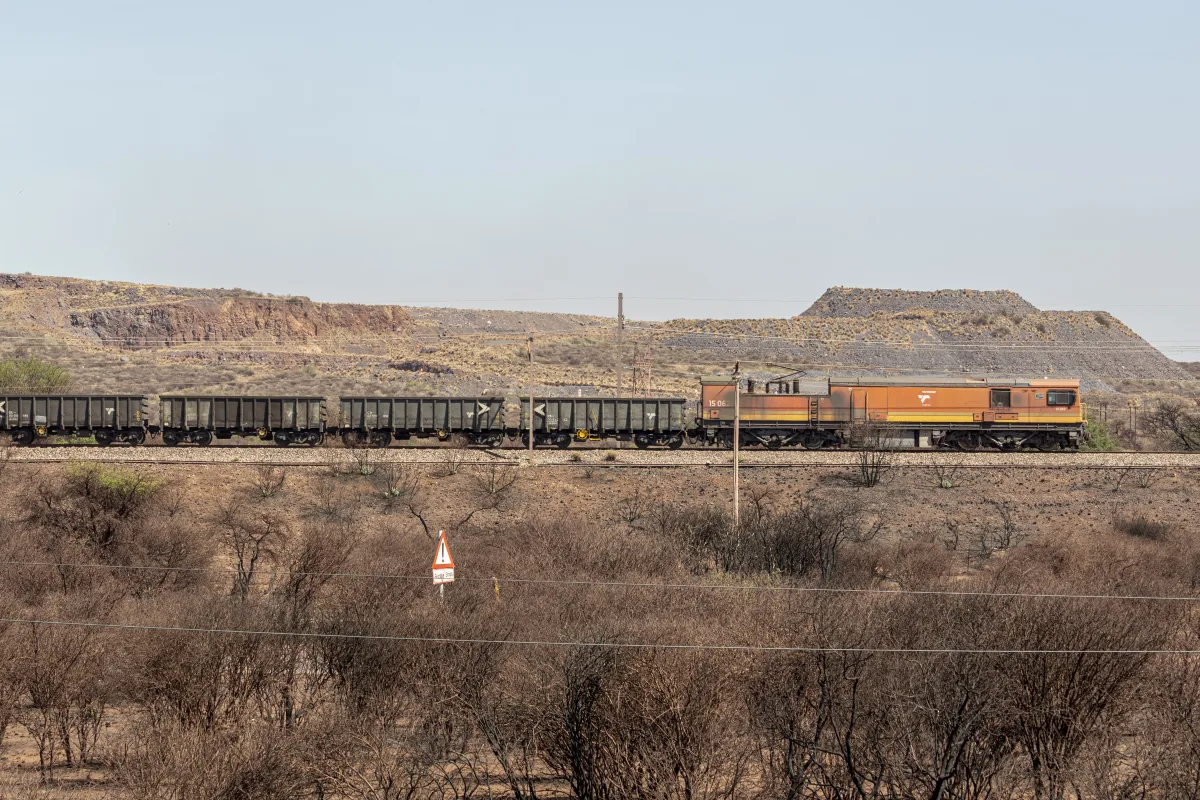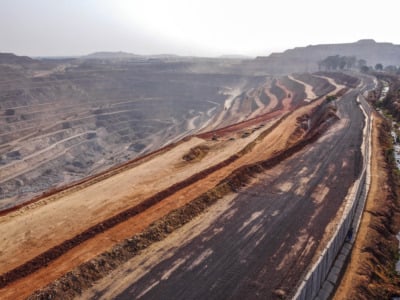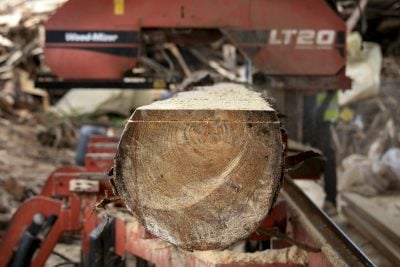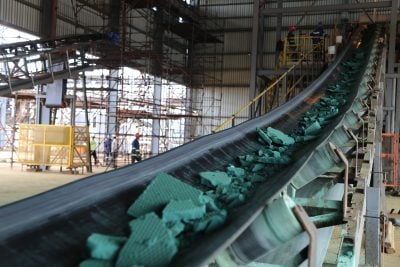These are interesting times for the African mining industry. Interest in the continent’s critical mineral reserves is soaring: lithium, copper, cobalt and nickel are vital to the energy transition and are opening up new mining opportunities across Africa.
Meanwhile, however, the problems at South African rail network Transnet have hit the country’s bulk miners hard – and delays to new rail projects are hampering efforts to develop new mines in Central Africa.
Modest global economic growth should drive slightly increased demand for mining commodities overall in 2024. There is still a great deal of uncertainty in the key Chinese market, although Beijing is attempting to encourage infrastructure investment by increasing funding for regional Chinese governments.
However, mining analysts CRU forecasts a 7.4% fall in the global volume of seaborne thermal coal traded in 2024, as international sentiment turns against coal-fired power generation. Coking coal production is expected to remain stable as a result of solid demand from the steel industry. There should be modest growth in demand for base metals in industrialised countries, with stronger growth for critical minerals. This should benefit African exporters but as always domestic constraints will have a bigger impact on the performance of African producers.
For instance, stable governance is vital if the Simandou iron ore project is finally to be developed in Guinea, while South African transport utility Transnet is currently failing to ensure sufficient rail capacity to shift coal and iron ore for export.
Reining in climate change
Global pressure to rein in climate change will increase year-on-year for a long time to come, with big implications for African mining. A very wide range of commodities is mined on the continent, from gold and diamonds to heavy bulk commodities such as coal, bauxite, iron ore and manganese.
There is, however, growing interest in the critical minerals that are vital for clean energy technologies, including electric vehicles (EVs), solar plants and wind turbines. The mineral inputs for an EV, for instance, cost on average six times more than those for a similar vehicle with an internal combustion engine. Almost all of those inputs can be sourced from Africa.
At the same time, some deposits are becoming more attractive than others because differences in mineral composition make some ore more suitable for use in new production processes, with steel a prime example. Steelmaking using coke to reduce iron ore in blast furnaces accounts for about 8% of total global carbon emissions. The coke can be replaced with hydrogen, potentially reducing emissions but currently requiring higher grade iron ore. Such ore is far from common, but is found in the Simandou reserves Guinea – the biggest known but untapped iron ore deposit in the world.
Investment in lithium Growing global demand for metals used in electric vehicle (EV) manufacturing is driving investment in lithium mines in particular. This should feed through into some level of African supply chain development, particularly in dedicated automotive special economic zones. Two such zones are to be built in Zambia and Democratic Republic of Congo (DR Congo) to produce battery precursors, batteries themselves and possibly even EVs. The two countries jointly account for 11% of global copper supply, while DR Congo accounts for 88% of global cobalt production.
There are currently nine lithium mines under development in Africa, in DR Congo, Ghana, Mali, Namibia and Zimbabwe, and others are planned elsewhere on the continent. Morocco hopes to diversify its existing automotive industry into EVs, making use of its own battery metal reserves. Moroccan firm Managem already supplies BMW with 20% of its cobalt requirements, while at the opposite end of the continent Lepidico’s Karibib lithium mine in Namibia could supply EV producers in neighbouring South Africa.
Zimbabwe is the biggest lithium producer in Africa and the sixth largest in the world. Three Chinese companies, Zhejiang Huayou Cobalt, Sinomine Resource Group and Chengxin Lithium Group, have all secured lithium assets in the country. Zhejiang Huayou Cobalt bought an 87% stake in the Arcadia lithium mine in April 2022 and is investing $300m in the project, with a seven year offtake agreement with Belgian firm Sibelco already in place. Some of Arcadia’s lithium is to be supplied to a lithium smelting plant, also in Zimbabwe, planned by Tsingshan Holdings. Harare banned the export of raw lithium ore at the end of 2022 to help build the domestic supply chain.
Global importance
Africa’s critical minerals reserves are becoming increasingly important to global supply chains. Robert Friedland is the founder of Ivanhoe Mines, which is developing the Kamoa-Kakula copper reserves in DR Congo.
He said last year: “There is no chance of making the energy transition without Africa.” This is prompting established players in other parts of the mining sector to become involved, with one of South Africa’s biggest mining firms, Exxaro Resources, set to diversify away from coal and ferroalloys and into critical minerals. It is also attracting new interest in African deposits, with Chinese miner MMG buying Botswana’s Khoemacau copper mine last year for $1.88bn.
South African woes continue
While critical minerals are a bright spot, there appears to be no end in sight to the problems currently plaguing the South African bulk mining sector. The industry is facing something of a perfect storm, with port congestion and a lack of rail locomotives exacerbating the impact of coal contract fraud and widespread vandalism of rail infrastructure.
Transnet cancelled contracts for the supply of 1,064 locomotives after only 595 had been delivered after saying that 2014 contracts worth $3.2bn had been unlawfully awarded by the previous board and management. Transnet is currently trying to secure contracts for spare parts to bring some locomotives that are currently out of operation back into use, but is having to cope with insufficient numbers at present.
At the same time, organised crime gangs are stealing overhead cables and other rail infrastructure on a massive scale, affecting volumes on the heavy haul line from the coal mines in Mpumalanga Province to Richards Bay Coal Terminal (RBCT). This has led to service cancellations and there have been track closures as a result of derailments. More recently, the gangs have also targeted the Sishen railway from iron ore mines in the Northern Cape to the Atlantic Ocean port of Saldanha. The volume of iron ore transported to Saldanha fell by 15% between 2019 and late 2023 because of persistent logistics problems, according to figures from South Africa’s biggest producer, Kumba Iron Ore. The company has called for greater private sector involvement in port and rail operations to help turn the situation around.
As a result, the volume of mining commodities handled by Transnet fell from 181.1m tons in the financial year 2020-21 to 149.5m tons in 2022-23. Transnet Freight Rail transported just 50.35m tons of coal to RBCT and other ports in 2022, the lowest figure for three decades. The estimated figure for 2023 is even lower at 47.44m tons, prompting miners to switch some coal from rail to road. All this has cut Transnet’s revenues, reducing the amount of cash available to invest in maintenance.
This has prompted some miners to reduce coal output, with Thungela attributing decreased production at three mines to “an increase in security-related issues as well as locomotive failures”, the company said. Exxaro Resources, Glencore and Seriti are among the other companies affected. Transnet announced in December that it would be able to add 14 trains a week to the main RBCT coal line between December 2023 and March 2024, taking the total to 35. Miners are also working with the transport utility to improve line security – but vandalism is so far continuing.
Apart from the impact on mine volumes, all this has undermined the industry’s ability to operate on a commercial basis at a time when costs are increasing.
Brighter manganese outlook
The big exception to this gloomy picture is South Africa’s manganese sector. Production has steadily increased from 4m tons in 2016 to 7.2m tons in 2022, with further growth expected over the next few years as Transnet completes a new 16m tons/year manganese export terminal at the Port of Ngqura in the Eastern Cape.
The African continent holds 85% of global manganese reserves. Most are in South Africa, but production is also growing in West Africa. Burkina Faso and Togo are attracting new investment, while the Ghana Chamber of Mines forecasts that Ghanaian manganese production will more than double this year to 5m tons, close to the 5.4m tons produced in 2019. Transport infrastructure has also played a key role in the trajectory of the coal industry in neighbouring Mozambique.
Despite the general move away from thermal coal, it has been reported in the country that Thai Moçambique Logistica (TML) has announced that it has revived its plan to build a new coal port at Macuse near the mouth of the Zambezi in Mozambique. The country’s coal sector has been badly affected by big investors pulling out, most recently Brazilian giant Vale. The planned project at Macuse appeared to have been abandoned but TML now seems to be targeting construction from mid-2024, with a 525 km railway also planned to connect the port to coal mines in Tete Province, with a spur line to Chitima. India and other Asian markets look to be likely buyers if the project is finally built.
Want to continue reading? Subscribe today.
You've read all your free articles for this month! Subscribe now to enjoy full access to our content.
Digital Monthly
£8.00 / month
Receive full unlimited access to our articles, opinions, podcasts and more.
Digital Yearly
£70.00 / year
Our best value offer - save £26 and gain access to all of our digital content for an entire year!
 Sign in with Google
Sign in with Google 



